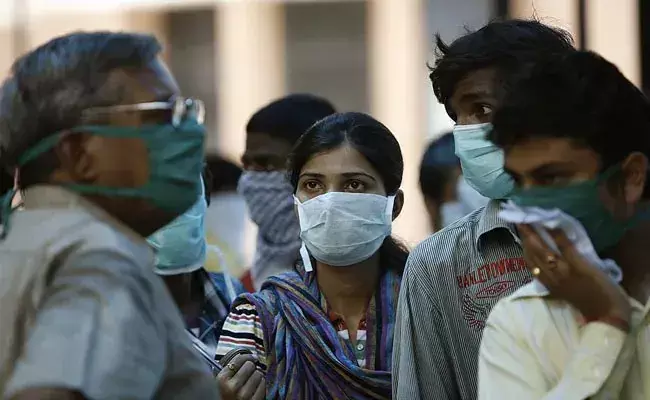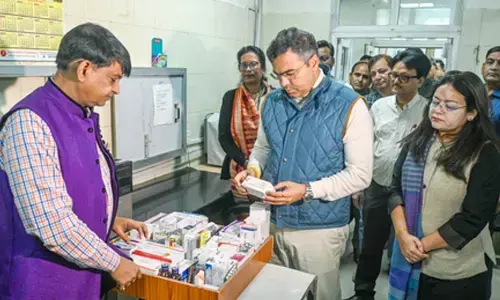H3N2 Virus Outbreak in India: 2 Reported Deaths and Information on Symptoms and Treatment

It has been reported that India has recorded two deaths caused by the H3N2 influenza virus in Haryana and Karnataka. Officials from the health department stated that the victim from Karnataka had symptoms of influenza-like illness (ILI), such as fever, sore throat, and cough, and passed away on March 1st at the age of 82. The first two deaths from this virus in India have caused concern as there have been over 90 reported cases of the H3N2 virus in the country.
What is the H3N2 virus?
The Centre for Disease Control and Prevention (CDC) states that H3N2v is a strain of influenza virus that is usually found in pigs and can also infect humans, known as "swine influenza viruses." When these viruses infect humans, they are referred to as "variant" viruses. The H3N2v variant virus was identified in 2011, and it contains genes from avian, swine, and human viruses, as well as the M gene from the 2009 H1N1 pandemic virus, as stated by the CDC.
H3N2v symptoms:
Common symptoms of the H3N2v virus include fever, respiratory issues such as cough and runny nose, as well as body aches, nausea, vomiting, or diarrhea. These symptoms typically last for around a week, but some individuals may experience them for a longer period of time.
Medication and prevention:
Individuals who are infected with the H3N2 virus are advised to take prescription medication such as oseltamivir, zanamivir, peramivir, and baloxavir. It is recommended that people take precautions such as getting an annual flu vaccination, practicing regular hand washing - especially after using the restroom, before eating, and before touching their face, nose, or mouth. They should also avoid crowded areas and limit contact with individuals who are ill. If someone has the flu, it is advised that they stay home for 24 hours after their fever has subsided.
Who is at higher risk?
As per the CDC, individuals who are at a higher risk of developing complications from the H3N2 virus include children under five years old, people who are 65 years and older, pregnant individuals, and people with certain long-term health conditions such as asthma, diabetes, heart disease, weakened immune systems, and neurological or neurodevelopmental conditions.














